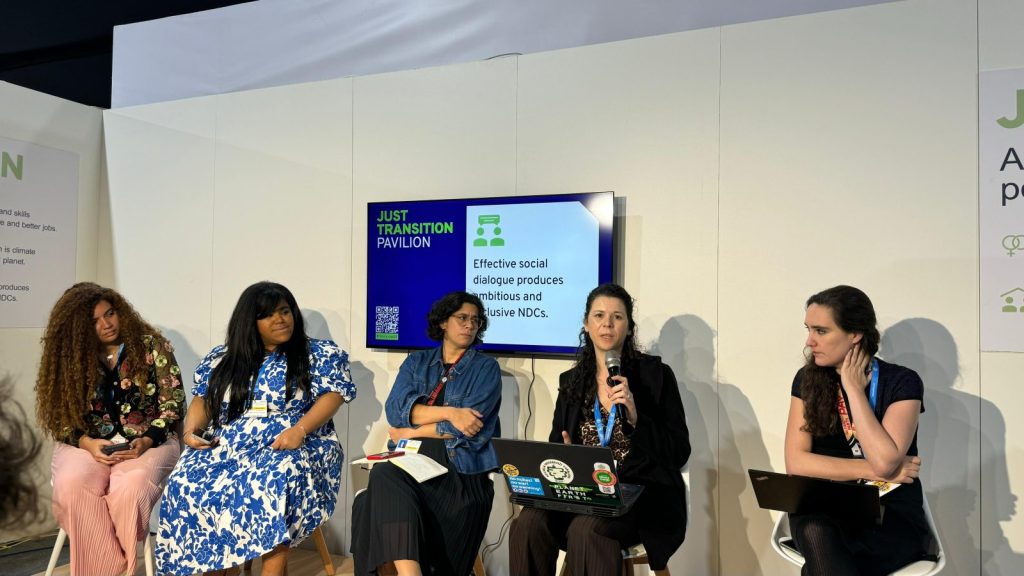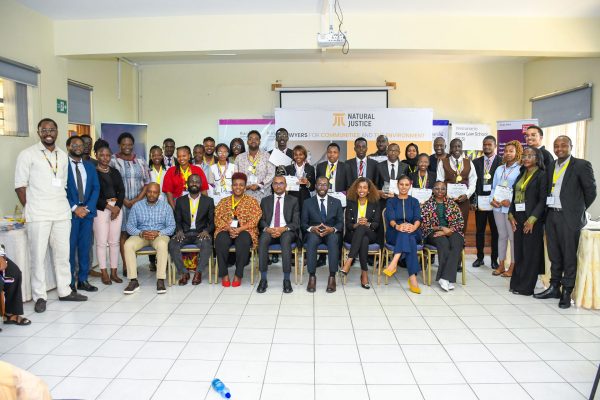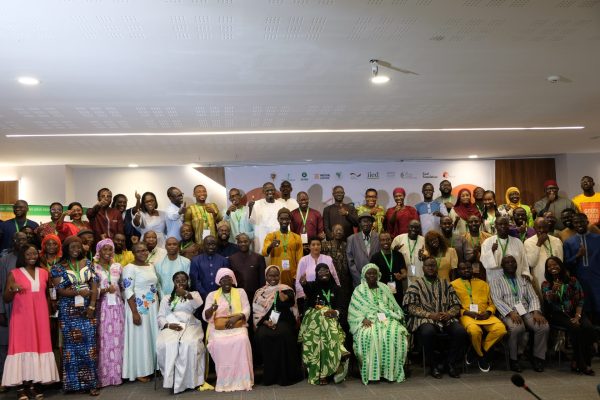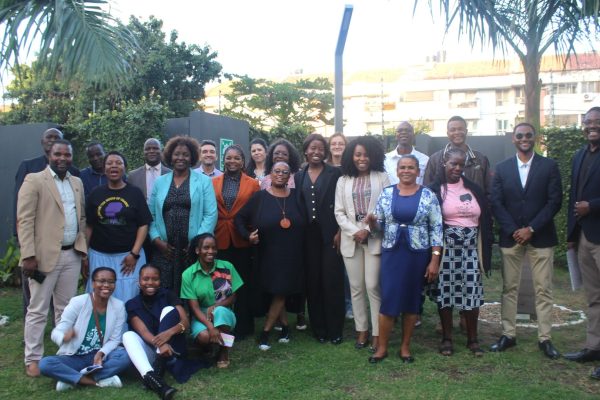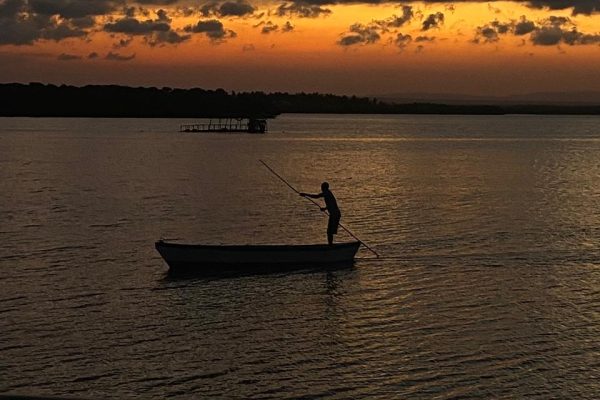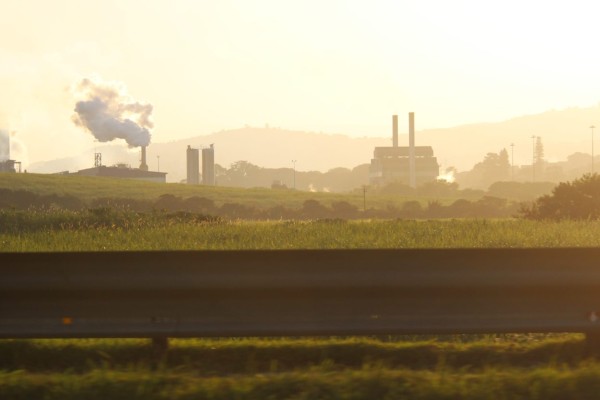As 2025 begins, Lauren Nel, Natural Justice’s Legal Coordinator: Just Energy Transition Africa Initiative, reflects on the last two years of the annual UNFCCC Conference of the Parties (COP) negotiations.
COP can be considered as the “Super Bowl” of climate conferences, yet the annual global summit had disappointing outcomes for programmes like the Just Energy Transition Initiative.
In 2024, global carbon dioxide emissions hit a new record of being the highest ever, with an increase of 0.8 percent from 2023. In addition to this, 2024 was the hottest year on record with warming hitting 1.5 degrees Celsius temporarily. Despite this, in the same year, during the UNFCCC COP29, there was no serious commitment to emission reductions and just energy transitions – with decisions taken at the meeting reflecting this.
Just by way of example, Africa had a hard line that climate finance. The African countries stated emphatically that they would need trillions in support in order for the continent to respond to climate change; but walked away with a promise of only 300 billion dollars in terms of the New Collective Quantified Goal on Climate Finance para 8.
The very first Conference of the Parties to the United Nations Framework Convention on Climate Change (UNFCCC) was held in Germany in 1995. Twenty-nine years have passed since the signing of the Paris Agreement, which provides for the global response to climate change. However, real change needed for energy and climate justice have not been delivered to date, and each year that passes becomes more urgent if we are to stop the worst of climate change.
I have only attended two Climate Change COPs: COP28 in Dubai and COP29 in Baku, Azerbaijan. Both resulted in contradictions although both saw a little progress. However, the small wins at both conferences will not be enough to make the change we need, which means that COP30 needs to see a radical shift in the promises made by countries, if we are going to make any difference to reducing global carbon emissions. But let’s talk first about what has transpired in the last two years.
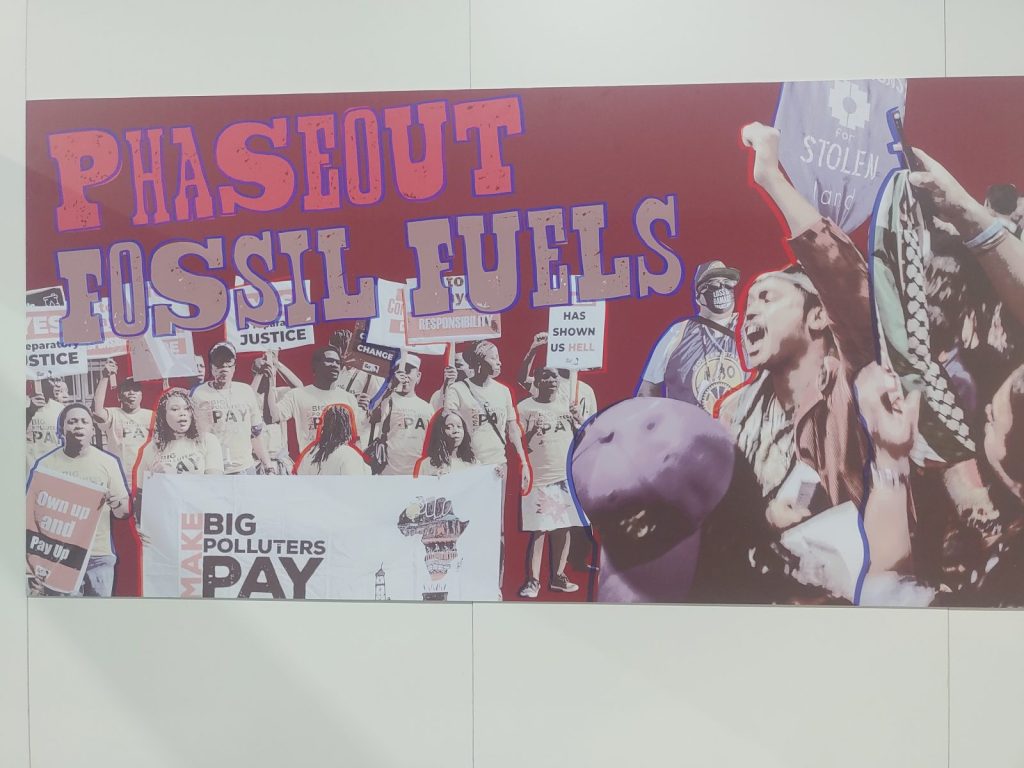
COP28 and COP29
At COP28 in 2023, I mostly stayed in the “blue zone” (the area where official sessions, meetings, and negotiations take place) attending side events and visiting pavilions, indulging in the events around renewable energy, countries’ plans for decarbonisation and civil society and states advocating for just energy transitions across the world. I watched with heightened optimism as the number of countries signing onto the “Pledge for Tripling Renewable Energy and Doubling Energy Efficiency” continued to grow. The Pledge created high hopes for COP29 and the continuation of the move to just energy transitions.
Push for “critical” minerals
Following the “Pledge on Tripling of Renewable Energy and Doubling of Energy Efficiency” came the increase of the mining for transition minerals. This resulted in the United Nations Secretary General’s Panel report on Critical Energy Transition Minerals. Selected experts drafted the text and a call of submissions was made for contributions to the report.
During COP29, discussions were again held on “critical” minerals. There seemed to be a lack of appreciation for the sacrifice mining communities and Indigenous People would need to pay due to the increase in mining.
The Panel report highlights these impacts, and communities and Indigenous Peoples’ rights to say no to mining. This right to say no should be respected by all states. It should also be considered who the minerals are “critical” for, as high demand for energy from the Global North should not be at the expense of environment and people in the Global South.
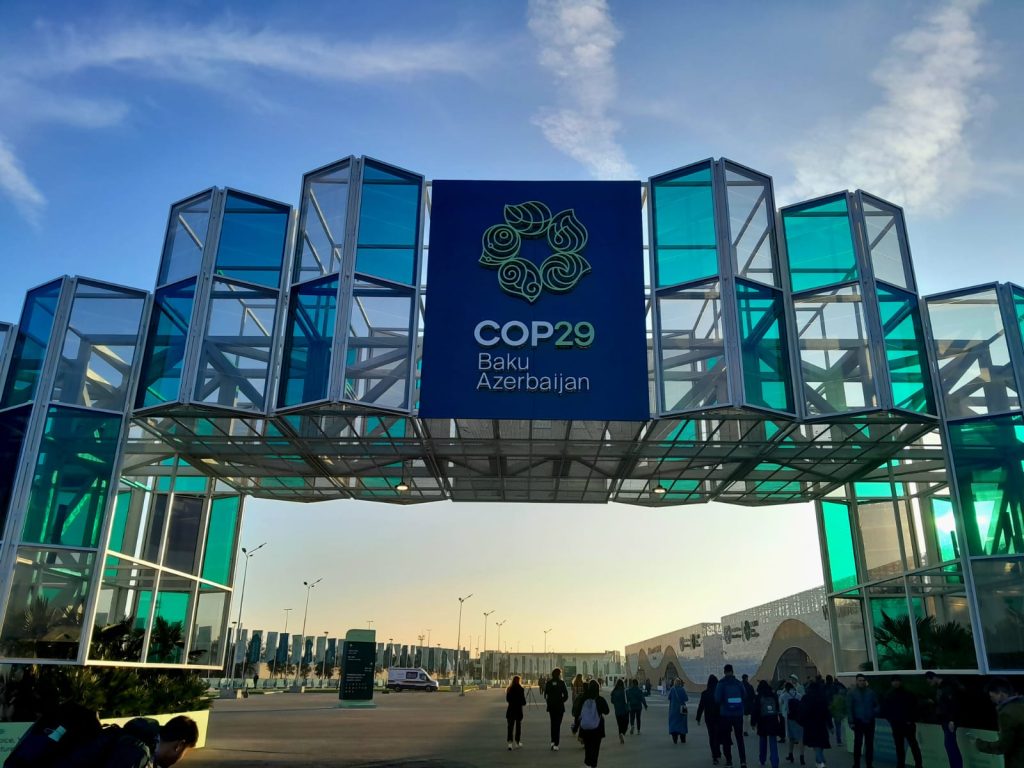
COP29 against the backdrop of a petrostate
Unlike COP28, the proponents who attended COP29 and the advocates for just energy transitions and renewable energy were faced with more fossil fuel lobbyists gaining entry. This resulted in the pushing of gas, oil and nuclear being very open. I was shocked to see the lack of recognition of the urgent need for the phasing out of fossil fuels.
Azerbaijan started modern crude refining in the 19th century, and in the 20th century accounted for more than half of the world’s oil production. Even today, you can go see the Yanar Dag, where natural gas has been linked to ancient fire worship. The fire has been burning for centuries due to the natural gas seeping through the mountain.
Beyond this history of this region, it highlights the exploitation and environmental damage that follows the modern oil and gas industry. This was the setting for a crucial COP where we needed real commitments, as we have begun to see the hottest years on record decimate African countries. However, against the backdrop of this petrostate, it could not be expected that COP29 would be the place where we would see real commitment to phasing out of fossil fuels.

The fossil fuels phase out
The most disappointing aspect of the outcome of the COP29 was that there is no recognition of the need for phasing out of fossil fuels, only the opportunities associated with transitioning away from fossil fuels. In other words, there was no real energy transition, only the pushing of more energy creation through both fossil fuels and renewable energy. There needs to be commitment to ending fossil fuels for a transition to take place.
On a more positive note, there is traction behind the Fossil Fuel Non-Proliferation Treaty which is supported by states, cities, organisations, businesses and individuals for a phase out of fossil fuels. You, too, can support it!
Natural Justice published two reports on just energy transition legal landscape in Southern Africa and a path to clean energy. These reports hold answers for concrete actions for just energy transitions.
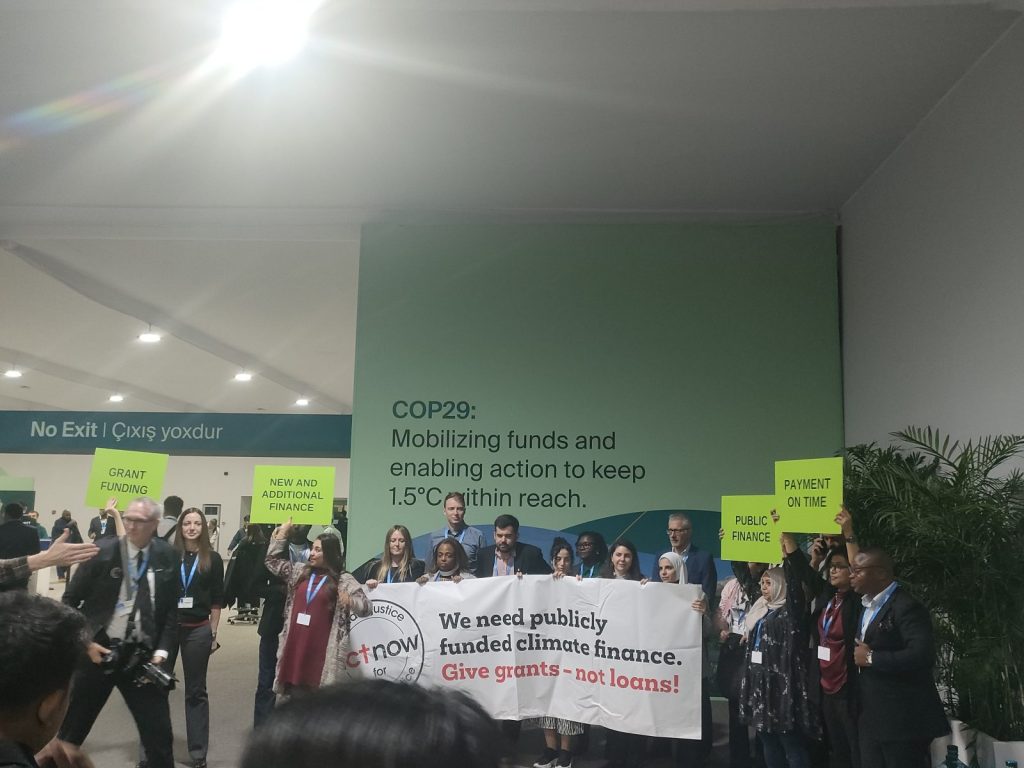
The change we need to see
What is lacking from our energy landscape is energy justice, which an energy transition will not change. Energy justice means having principles of meaningful public participation, redressing past harms of fossil fuel energy, having inequality addressed in energy systems in future energy planning, policy and law. This will ensure substantive equality for all in energy access and affordability, respect and promotion of Indigenous Peoples and communities rights, and acceleration of renewable energy in energy systems.
The world needs to see overconsumption being curbed with “people put before profit”. We need real systems’ change where there is respect and promotion of human rights and environment.
Change also requires dedication.
With no real change taking place at COP29 we have wasted another year, which we cannot afford. Following these COPs, the world will no longer be discussing how to reduce our emissions to stop the world going over a 1.5 degrees Celsius temperature increase. It has already happened.
Every moment must now be seized to stop the climate emergency. Beyond that, there is also urgent action needed to stop the conflicts taking place across the world – they are violating human rights, and adding to the climate crisis.

